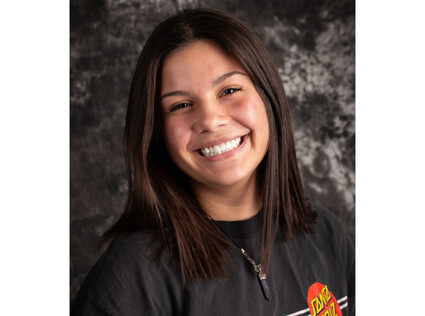The sky has no limit, path to the military
March 18, 2023
Students take various different career paths. Some want to be lawyers, fire fighters, or even something as simple as being a fast food worker. Others choose to go into the military. Sadly, students who are interested in this path often don't know where to start. One question that dangles over the heads of student's is whether they should go to college before enrolling or if they should enlist and get their feet settled in their job and then start college.
The first step is passing the ASVAB. According to Today's Military, the ASVAB (Armed Services Vocational Aptitude Battery) is a heavily researched and well respected aptitude test developed by the Department of Defence. It measures young adults' potential success in the military and their strengths. You need to get a hold of a recruiter in order to take the ASVAB test. From there, you can plan a date and a place to take the test. Focusing on the AirForce and Navy, the lowest passing score that you can get in the AirForce is 36 and with a GED 65. The lowest passing score for the Navy is 35 and 50 if you have a GED. Passing scores differ between the other branches, too.
If you are thinking of enlisting and then going to college, there are pros and cons. Some of the pros of enlisting and then going to college will include: being eligible for military benefits that may pay for your education during and after your time of service, your military training possibly qualifying as credits, and having the opportunity to retire early. "Those who serve for at least 20 years can typically collect retirement pay. Conceivably, those who enlist at 17 or 18 could retire before 40 and collect military benefits, and still be young enough to pursue a second career." (Villanova University) Some of the cons include "starting at the bottom, because there are some programs where having prior knowledge would be helpful", as HM3 (Hospital Corpsman Third Class), Steven Harp expressed. Also, as Technical Sergeant Shawn Roberts says, "It's hard to juggle both college and working at the same time."
On the flip side, there are also pros and cons in going to college before enlisting into the military. Some of the pros include: "If you go to college before you enlist, you can become an officer. You can make more money as an officer," stated Tech. Serge. Roberts. According to the U.S. Army website, a bachelor's degree is needed to become a commissioned officer and a master's degree is needed for those who want to rise to the rank of captain and above. The only real con would be "You're going to be paying for all of your college on your own, and can be left with student loans," as HM3 Steven Harp put it.
Just like everything else in life, the decision on whether to enlist and then enroll in college or getting your college education, and then enlist in the military have their pros and cons. But at the end of the day, do what you feel is best. Harp shared his thoughts, "The service is good for someone who doesn't know what they want to do right out of high school. For instance, for those first four years out of highschool, if you don't know what you want to do, you just wander around. Whereas in the service, you get your feet settled, and you'll grow up and mature pretty fast." The decision is entirely up to you. Make sure to choose wisely.
Melody Roberts is a Sophomore at Valley Oaks Charter School
Works cited
"Villanova University." – http://www.villanovau.com/resources/military/military-or-college-first-pros-and-cons/.
"ASVAB Test." ASVAB Test – http://www.todaysmilitary.com/joining-eligibility/asvab-test LLC, Union Media.
"Minimum ASVAB (AFQT) Score for Each Branch of the Military." – http://www.uniontestprep.com/asvab/blog/minimum-asvab-afqt-score-for-each-branch-of-the-military/.





